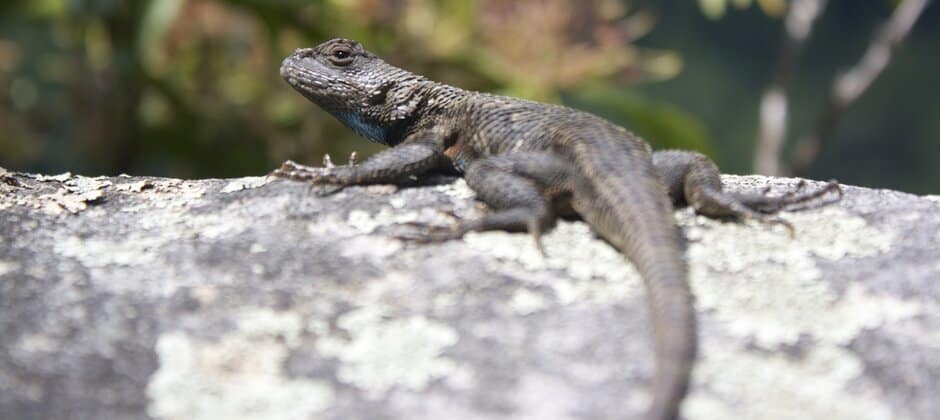Share this article
TWS2021: Eating fire ants may protect fence lizards
Eastern fence lizards may be eating their way to immunity from invasive ant venom in the Southeastern United States.
Red imported fire ants (Solenopsis invicta) were first introduced to states like Alabama 70 to 80 years ago. They spread out from their initial introduction areas, quickly causing problems for a number of wildlife, including eastern fence lizards (Sceloporus undulatus). The ants can overwhelm, kill and consume the lizards—and it likely happens often.
“There are a lot of fire ants in some of the areas we go to,” said Catherine Tylan, a postdoctoral researcher in biology at Pennsylvania State University.
In earlier research, Tylan and her colleagues found that wild lizards in Alabama exposed to fire ants have certain antibodies that those naïve to the invasive threat don’t have. But they wanted to get a better idea of how exactly the fence lizards gained this resistance.
In research presented at The Wildlife Society’s virtual 2021 Annual Conference, the team captured wild lizards from a population in Kentucky where fire ants had not yet arrived. They fed some of these lizards dead fire ants three times a week. Because the reptiles don’t usually eat dead insects, they had to trick them. “I had to make tiny balls of dead ants and glue them to a live cricket with a tiny dab of honey,” Tylan said.
Then, they exposed another group of the lizards from the same population to stings from less than 12 ants at a time for 30-second periods three times a week (these were not lethal exposures). Finally, there was a control group that wasn’t fed ants or exposed to stings.
After their testing, they took blood from the fence lizards to analyze their immunity to fire ant venom. They found that the lizards that ate fire ants had three different kinds of increased immunity. This included elevated white blood cells that fight against venom, better fire ant venom antibodies, and better immunity in a part of the blood system that helps deal with foreign material.
“By eating fire ants, the lizards may be able to shore up their defenses against stinging,” Tylan said. “Eating the fire ants is helpful to them in terms of dealing with future envenomation.”
But being stung didn’t appear to help lizards that much with immunity. Those stung in the experiment actually had decreased immunity in nearly every category except in the blood cells found in the skin tissue. But the increase in blood cells may have just been a result of inflammation, Tylan said.
The study shows that eastern fence lizards can adapt to the venom of these invasive insects in the wild by snacking on ants, Tylan said. This relative immunity may be enough to give them time to flick off the ants that climb on top of them and run away.
Header Image:
By eating fire ants, eastern fence lizards like this one could become immune to their venom.
Credit: Chris Dodds








